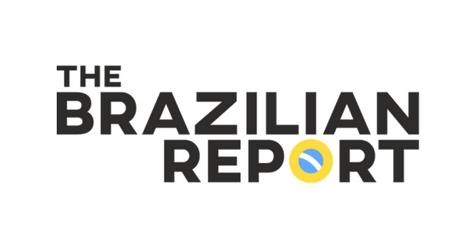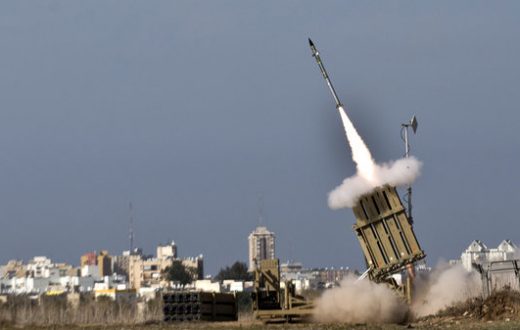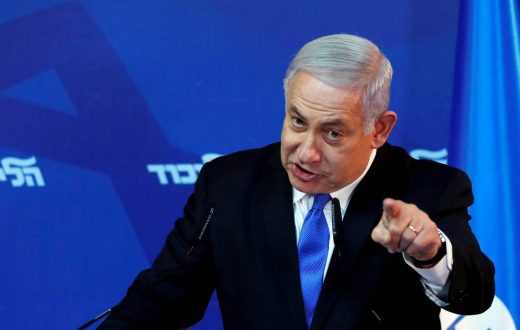New trade agreements between Brazil and Israel are in the works, with new deals bestowing scientific and defense technologies on Brazil. In late February, the Brazilian Senate website announced that Israel would be offering guidance and technology to help with water sustainability, with a particular focus on desalinization technologies.
A few days later, Israel’s Minister of Science and Technology Ofir Akunis confirmed that defense technology would be another part of this deal. “We are among the ‘top 10’ in space and satellite technology, and we know there is a lot of interest in Brazil in this area,” he told Valor.
Akunis traveled to Brasília in early March on his first official visit, meeting with Brazil’s science minister Gilberto Kassab. The two ministers, along with director of the Israeli Space Agency Leo Vinovezky, visited Brazil’s National Center for Monitoring and Alerting Natural Disasters (CEMADEN), the National Institute for Space Research (INPE) and Embraer.
Jayme Blay, president of the Brazil-Israel Chamber of Commerce and Industry (CAMBICI), told The Brazilian Report that he believes the two countries have “complementary economies”, with new agreements bringing benefits to both parties.
“Israel exports technology, and Brazil benefits twice over, as much with the products developed there in the country as with those that are exporter. On the other hand, Israel tries to buy more Brazilian products to favor trade,” he said.
“Israel is strong in technology, but we are not growing coffee or producing meat,” Yossi Shelley, Israel’s ambassador to Brazil, told The Brazilian Report. “And now, those things are being brought here in good quantities. It’s a win-win.”
Shelley confirmed to The Brazilian Report that agreements have been signed between the two governments in relation to satellite technology, as well as defense technology including certain types of missiles, radars and high-tech surveillance cameras.
Brazil has historically imported weapons from Israel. According to the Stockholm International Institute for Peace Research, Brazil is Israel’s fifth largest weapons importer. This looks set to continue, as governments have now signed a security agreement recently developed under the supervision of Brazilian defense minister Raul Jungmann.
“In the last few years, Brazil has purchased a lot of surveillance equipment from Israel on account of the World Cup and the Olympics,” Maurício Santoro, an international relations professor at Rio de Janeiro state university (UERJ), explained to The Brazilian Report. “And of course, the demand may continue with the federal intervention in Rio.”
Meanwhile on March 14, CAMBICI representatives met with Dr. Ami Appelbaum, chief scientist at Israel’s Ministry of Economics and Industry and chairman of the Israel Innovation Authority. During the meeting, Appelbaum presented agribusiness, health, and cybersecurity as potential areas of collaboration between Brazil and Israel.
‘Friendlier relations’
The final agreements have now been signed by all parties involved, according to Blay, who says that this is a sign of a changing relationship between the two countries. “For fifteen years, [Brazil’s] governments had a negative attitude towards Israel,” he said. “This new government has changed its position. The position became friendlier.”
Shelley echoed Blay’s sentiments, describing current relations between Brazil and Israel as “the best that I remember”.
Diplomatic relations between the two countries have been shaky in recent years. In August 2016, Israel appointed Dani Dayen, a businessman and politician who was a key leadership figure in some violent Israeli settlement movements in Palestinian territories. Brazil refused to accept Dayen’s nomination, fearing it could destabilize its consistent two-state approach to Israeli and Palestinian territories and would serve as a recognition of Israel’s sovereignty.
At the time, a spokesperson for the Israeli foreign ministry responded by calling Brazil a “diplomatic dwarf.”
While Brazil counts itself among the nations that played a key role in founding the Israeli state, it has also maintained consistent diplomatic and trade relations with Arab nations. But it has historically supported a two-state approach, participating in peace missions in Egypt and Lebanon in the effort to reduce tensions with the Israeli military in the region.
Certain decisions have made Brazil unpopular with Israel. It reaffirmed its recognition of Palestine as a state as recently as 2010, and supported a UN resolution between 1975 and 1991 that designated Zionism as racism. Additionally, it has attempted to interact with countries that Israel labels enemies – such as recent attempts to mediate talks between Turkey and Iran on a nuclear power plant program.
However, trade deals have remained largely unaffected by diplomatic tiffs: bilateral trade surpassed 1 billion USD in the years running up to 2016, boosted by Israel’s standing as the only country outside of South America to enjoy free trade deals with Mercosur.
Nor have geopolitical disputes hindered relations significantly in the past. Despite recognizing the Palestinian state in 2010, Lula visited Israel in the same year, becoming the first Brazilian head of state to do so. Meanwhile, Brazilian imports of Israeli aviation components and Israel’s imports of Brazilian foods have remained strong throughout hiccups – so much so that Israeli Prime Minister Benjamin Netanyahu may visit Brazil this June.
According to Santoro, Brazil’s powerful – and growing – evangelical caucus could be a factor in how relations between the two countries have eased in recent years.
“Brazilian evangelical politicians have sought out closeness with Israel,” UERJ’s Santoro explained. “Many of them take trips to Israel and are photographed bathing in the River Jordan, visiting Jerusalem. This is an important element, in the way that this religious group thinks about international relations in Brazil.”
“This could even have an impact on Brazilian diplomacy. This group is getting stronger, and so they are seeking more control with policy,” Santoro continued. “They could end up bringing Brazil’s foreign policy closer to Israel, and further away from Arab countries.”
This article, written by Ciara Long was originally published by The Brazilian Report and is available here.







